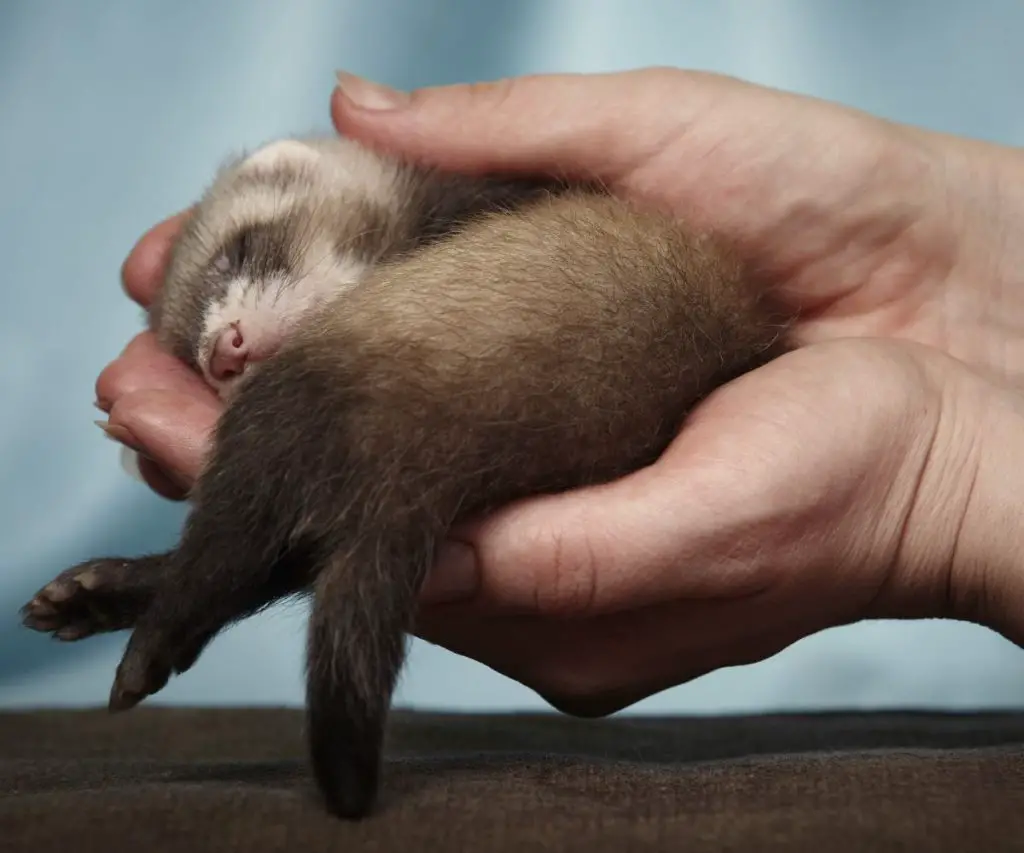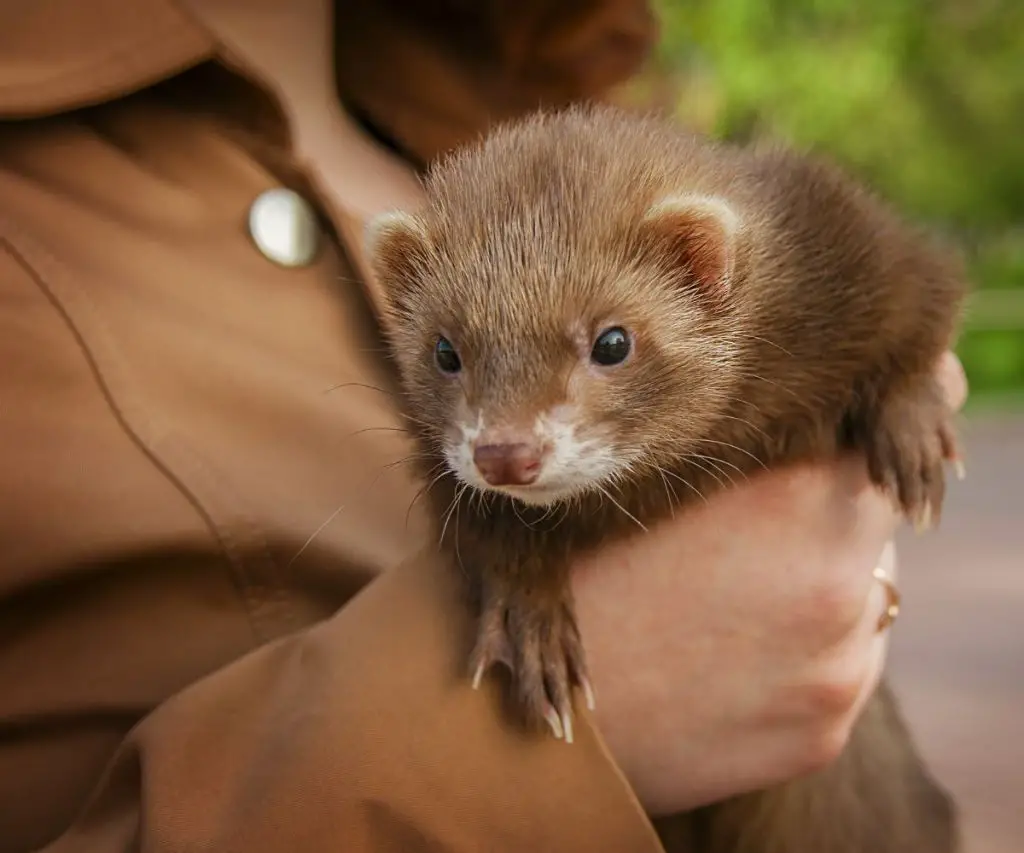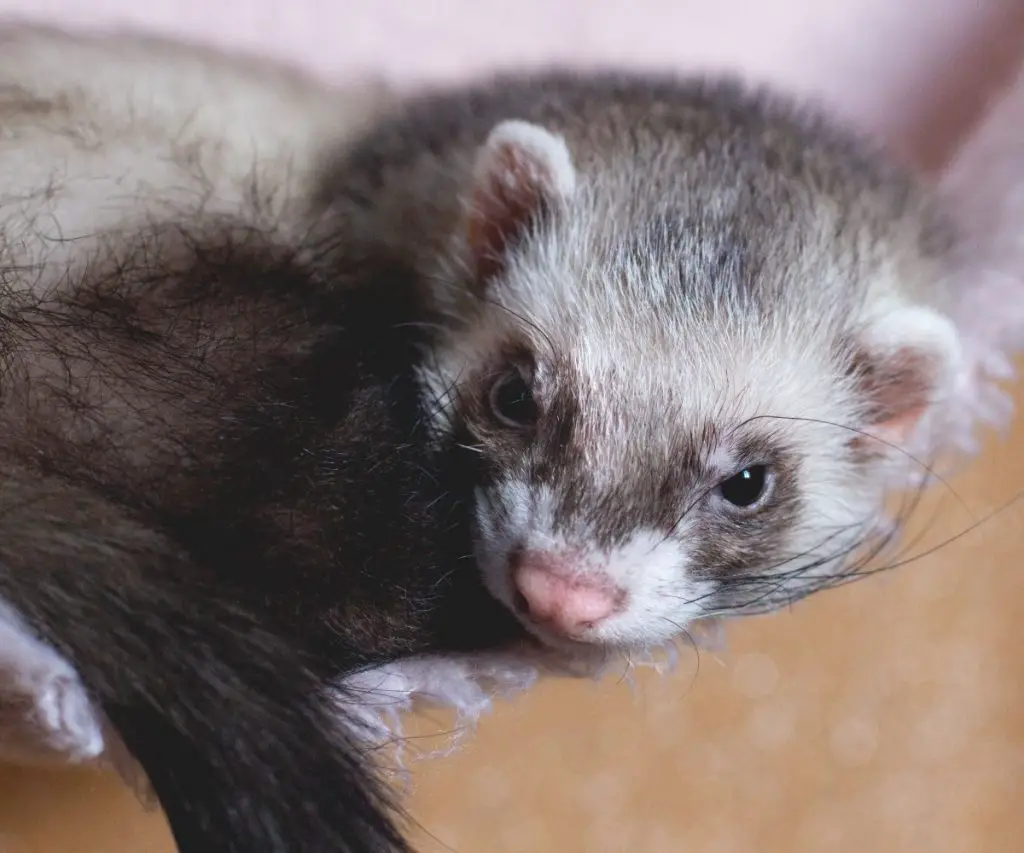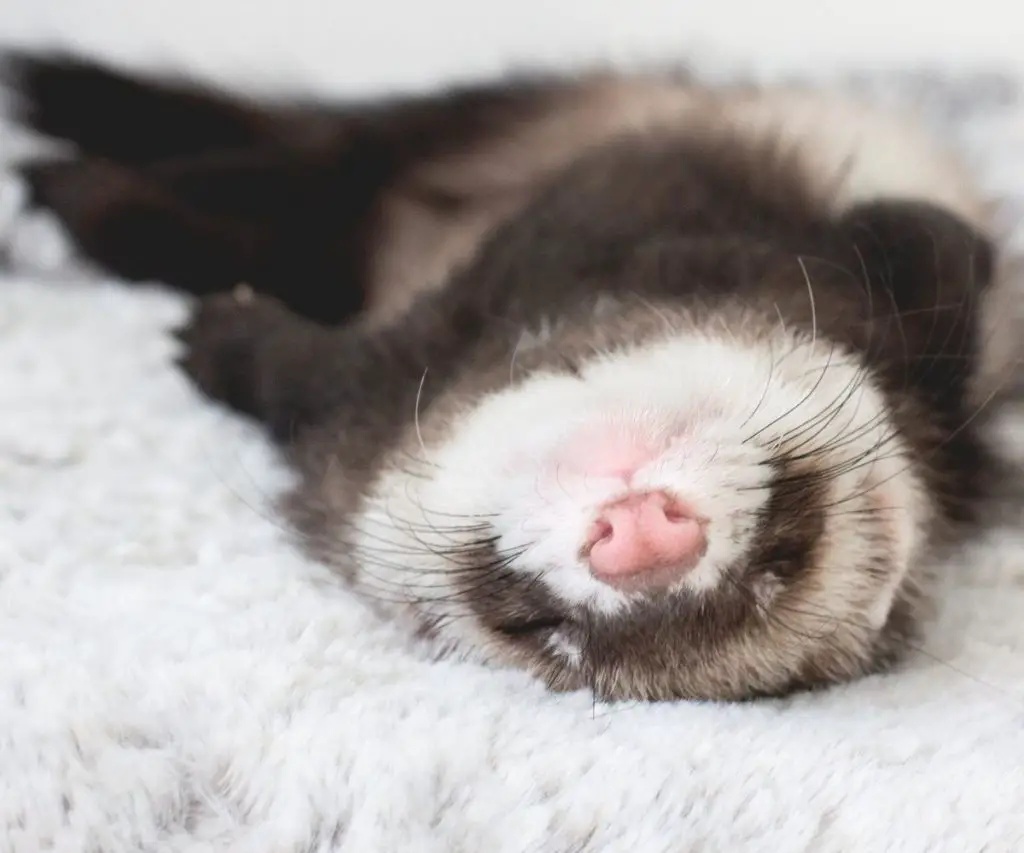Ferrets have a reputation as some of the most interactive, cuddly small pets. One of the factors behind their playful nature is their need for long hours of sleep. Without 16-20 daily hours of sleep, they wouldn’t be so high-spirited. But can ferrets sleep with you?
Can You Get a Ferret to Sleep With You?
While healthy ferrets are happy and affectionate, they don’t necessarily like to cuddle with humans. It’s best to allow ferrets to sleep when and how they see fit and enjoy their loving nature while they’re awake.

Do Ferrets Like to Sleep With You?
Many people assume that because ferrets enjoy human interaction, they must also enjoy sleeping near their owners. However, ferrets can be choosy about where and how they sleep. That leaves many ferret owners wondering: Why won’t my ferret sleep with me?
Ferrets like to snuggle with other ferrets. They’re not usually keen on sleeping with human companions, however. One of the reasons is that they’re sensitive to temperature.
Ferrets do best in cooler temperatures. They can fall into a deeper sleep if it’s either too cold or too hot.
Another thing to consider is that even though ferrets are adaptable and can fall asleep almost anywhere, they prefer closed spaces. Much like cats, ferrets will seek out places that are dark enclosures.

How Do You Get a Ferret to Sleep With You?
Though ferrets are brilliant and trainable, owners should know that teaching them to snuggle during sleep is near impossible. Training ferrets to sleep nearby or on the owner’s chest may be possible through gradual practice, but it’s not advisable.
Because of their small size, it can be dangerous for ferrets to sleep with their owners. Humans are large and can potentially harm their ferrets in their sleep. In addition, ferrets may bite or scratch the owner if they feel forced to sleep in a particular way. Ultimately, snuggles are best when limited to wakeful periods.

Understanding Ferret Sleep Habits
Ferrets are crepuscular animals, which means they’re most active during dawn and dusk. They can sleep a maximum of 20 hours, though they don’t do it all in one go. Like other crepuscular creatures, ferrets’ sleep is broken into long naps throughout the day.
Ferret Dead Sleep
During their wakeful periods, ferrets love to play and explore. However, the amount of sleep most ferrets require can be nerve-racking to new owners. The infamous “Ferret Dead Sleep” can be particularly unsettling.
When ferrets go into this deep sleep stage, they appear momentarily lifeless. The deep REM sleep stage is not the same as hibernation.
Winter Sleep
Though temperature affects their sleep (they tend to sleep longer in winter), ferrets do not hibernate. They will undergo noticeable physical changes during winter, however. The time they sleep a bit longer will coincide with ferrets becoming fluffier.
During the winter period, it’s normal to find that ferrets have a new coat and have gained a little weight. This winter sleep phenomenon is natural and not exclusive to ferrets, however. Additionally, owners may notice that male ferrets sleep in longer and may even need to be roused to eat sometimes.

How Much Sleep Is Too Much?
Many owners may wonder if their ferret is getting too much sleep or if sleeping long hours indicates illness. Generally, sleeping in longer is not cause for concern.
When combined with changes in personality or habits, however, extra sleep may be the result of illness. Owners should keep a record of their ferret’s behavior so they can immediately take note if something is off.
Insulinoma
If a ferret displays behavioral changes such as eating less or not using the litter as often, longer sleep may indicate a problem. One of the most common conditions that can affect ferrets is insulinoma, in which a tumor develops in the pancreas.
Insulinoma is a serious condition that warrants medical attention. Owners should be on the lookout for any of the following in addition to excessive sleep:
- Sudden disinterest in playing
- Excessive licking
- Teeth grinding
- Changes in litter habits
Adrenal Issues
Excessive sleep can also indicate adrenal disease in ferrets. In this case, a ferret’s sleepiness is accompanied by the following symptoms:
- Hair loss, especially on the tail
- Lethargy
- Changes to the fur on their belly and shoulders
Adrenal problems are more common in older ferrets. Ferret owners should call a vet if they notice any major changes in energy along with loss of fur.
Ideal Sleep Conditions
Ferrets love soft things. Though they can literally fall asleep on anything, these animals enjoy sleeping on lush fabrics and enclosed, cave-like places.
While it isn’t necessary, owners may like to provide a plush sleeping bed for their pets. Some products, such as this one, combine elements of both sleepers and fun hideouts. Having a sleeper that acts as a soft bed and a cozy hiding place may just be the ideal sleeping spot for many ferrets.
Sleeping With Your Ferret
Ferrets are fantastic sleepers. They spend most of the day sleeping so their brains can recharge and be agile while they’re awake. Though long sleep is normal, occasionally, it can indicate a problem if there are other signs present. As long as owners keep track of their ferrets’ habits, knowing when they’re healthy should be easy.


